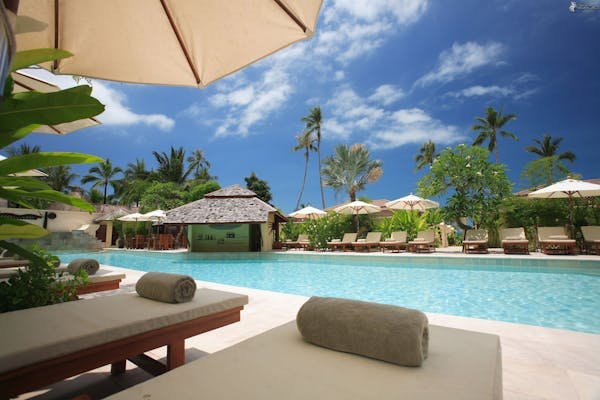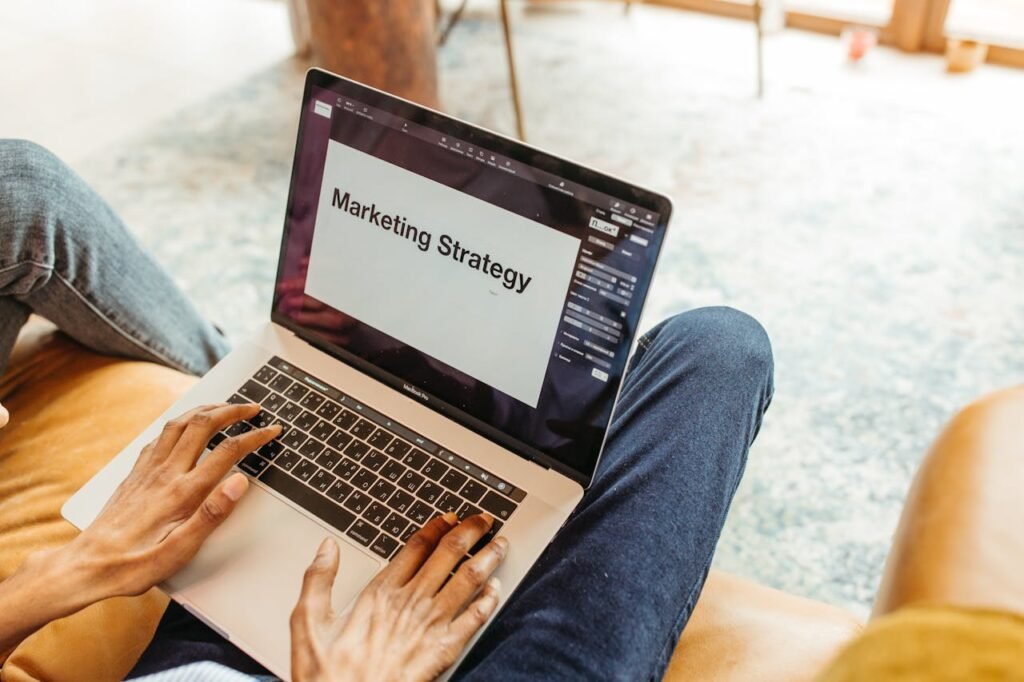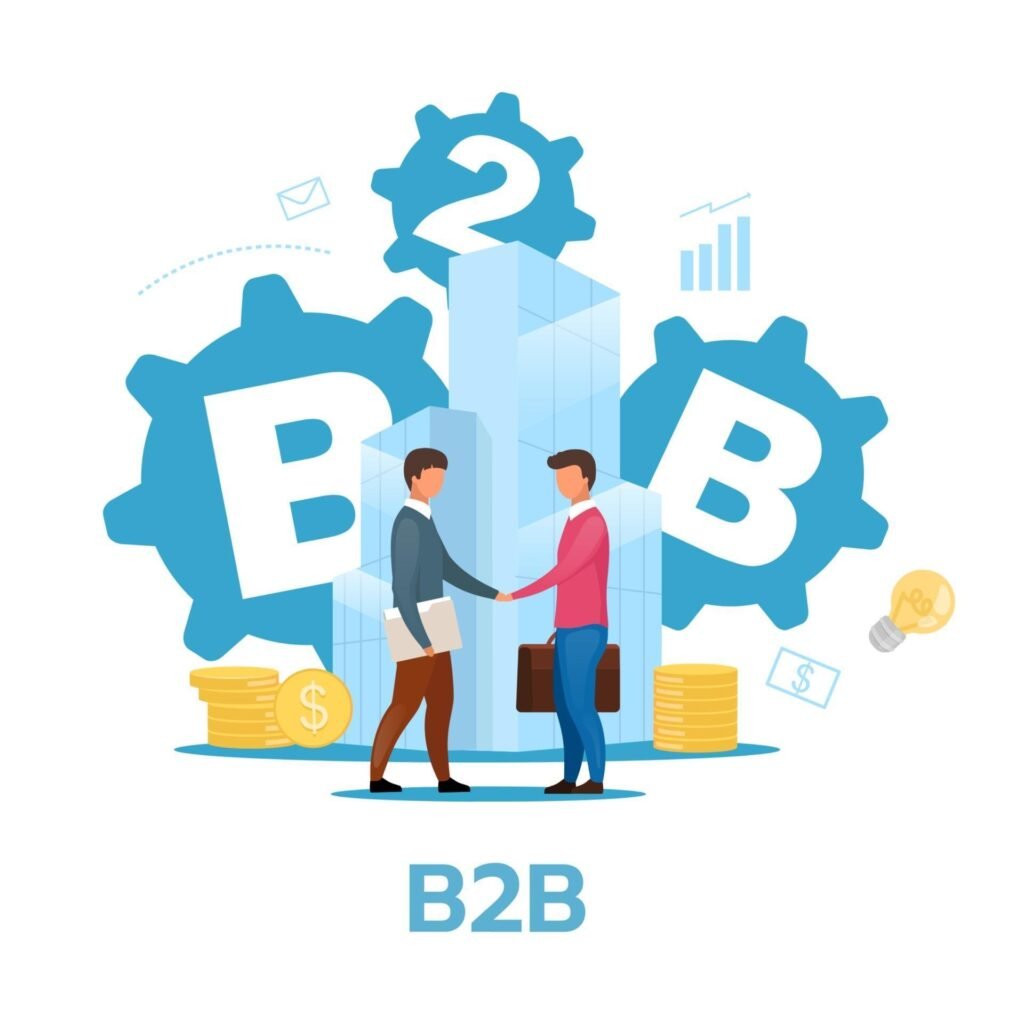Marketing a hotel effectively requires a blend of traditional and digital strategies. With the rise of online travel agencies and review platforms, it’s crucial for hotels to stand out in a crowded market. This article will guide you through the best tactics to market your hotel, ensuring you attract more guests and boost your revenue.
Understanding Your Target Audience
Creating Detailed Customer Personas
To effectively market your hotel, you need to go beyond basic demographics and create detailed customer personas. These personas should represent your ideal guests and be based on thorough research. Start by analyzing data from your booking system, social media insights, and customer feedback.
Identify patterns in guest behavior, preferences, and booking habits. For example, if a significant portion of your guests are young professionals, your persona might include details such as their preference for modern amenities, fast Wi-Fi, and proximity to business districts or trendy local spots.
Once you have your personas, use them to guide your marketing efforts. Tailor your website content, social media posts, and promotional offers to address the specific needs and desires of each persona. This targeted approach ensures that your marketing messages resonate more deeply with potential guests, increasing the likelihood of bookings.
Mapping the Customer Journey
Understanding your target audience also involves mapping out their customer journey. This journey includes every touchpoint a potential guest has with your hotel, from the moment they first hear about you to their post-stay experience. Identify the key stages of this journey: awareness, consideration, booking, stay, and post-stay.
During the awareness stage, guests are just learning about your hotel. Ensure your marketing strategies are designed to capture their attention. Use social media advertising, SEO, and content marketing to reach them. In the consideration stage, provide detailed information and enticing visuals on your website to help them make an informed decision.
The booking stage is critical. Simplify the booking process on your website and ensure it’s mobile-friendly. Offer direct booking incentives to encourage guests to book through your site rather than OTAs. During their stay, focus on delivering exceptional service and personalized experiences. After their stay, follow up with thank-you emails, request reviews, and offer loyalty programs to encourage repeat bookings.
Leveraging Data Analytics
Data analytics can provide deep insights into your target audience’s behavior and preferences. Use tools like Google Analytics to track website traffic, user behavior, and conversion rates. Analyze this data to understand which marketing channels are most effective and what content resonates best with your audience.
For instance, if you notice that a blog post about local attractions drives significant traffic to your website, create more content around local experiences. Use this data-driven approach to continuously refine your marketing strategies.
Additionally, consider investing in customer relationship management (CRM) software to track and analyze guest interactions. This can help you identify high-value guests and tailor your marketing efforts to retain them.
Conducting Competitive Analysis
Understanding your target audience also involves knowing what your competitors are doing. Conduct a thorough competitive analysis to identify the strengths and weaknesses of other hotels in your area. Look at their marketing strategies, guest reviews, and social media presence. Identify what they are doing well and where there are gaps.
Use this information to differentiate your hotel. If competitors focus heavily on business travelers, consider targeting leisure travelers with family-friendly amenities and packages. If they excel in luxury experiences, position your hotel as an affordable yet stylish alternative. By understanding the competitive landscape, you can carve out a unique position in the market that appeals to your target audience.
Engaging with Your Audience
Direct engagement with your audience can provide invaluable insights. Host Q&A sessions on social media, encourage guests to share their experiences and feedback, and respond to comments and messages promptly. Use these interactions to gather qualitative data about your guests’ needs and preferences.
Host focus groups or send out detailed surveys to gather more in-depth insights. Ask questions about what influences their booking decisions, what amenities they value most, and how they perceive your hotel compared to competitors. Use this feedback to make informed decisions about your marketing strategies and hotel offerings.
Building an Attractive Online Presence

Developing a Strong Brand Identity
Creating a strong brand identity is essential for building an attractive online presence. Your brand should reflect the unique personality of your hotel and resonate with your target audience. Start by defining your brand’s core values, mission, and vision. These elements will guide your branding efforts and ensure consistency across all platforms.
Design a memorable logo and choose a color scheme and typography that reflect your hotel’s character. For instance, if your hotel is a luxurious retreat, opt for elegant fonts and sophisticated colors. If it’s a vibrant, family-friendly destination, use playful fonts and bright colors. Your brand identity should be consistently applied to your website, social media profiles, and marketing materials to create a cohesive and recognizable image.
Crafting High-Quality Content
Content is king when it comes to attracting and retaining online visitors. Develop a content strategy that includes blog posts, videos, and social media updates that provide value to your audience. Create content that showcases the unique aspects of your hotel, such as behind-the-scenes looks at daily operations, interviews with staff, and guest testimonials.
Storytelling can be a powerful tool in your content strategy. Share stories about the history of your hotel, the inspiration behind its design, or memorable guest experiences. These narratives make your hotel more relatable and engaging to potential guests.
Additionally, produce high-quality visual content, including professional photographs and videos that highlight your hotel’s amenities, rooms, and surroundings. Visual content is crucial for capturing attention and driving engagement.
Optimizing for Mobile Devices
With an increasing number of travelers using mobile devices to search for and book accommodations, optimizing your online presence for mobile is critical. Ensure your website is responsive, meaning it adapts seamlessly to different screen sizes. Test your website on various devices to confirm that all features, such as booking forms and navigation menus, work correctly on mobile.
Streamline the mobile booking process by minimizing the number of steps required to complete a reservation. Implement mobile-friendly payment options and ensure that all important information is easily accessible on smaller screens. A smooth mobile experience can significantly boost your conversion rates and enhance guest satisfaction.
Implementing Local SEO Strategies
Local SEO is essential for attracting guests who are searching for accommodations in your area. Optimize your website for local search terms, such as “boutique hotel in downtown Chicago” or “beachfront resort in Miami.” Include these keywords naturally in your website’s content, meta descriptions, and headers.
Claim and optimize your Google My Business listing to improve your visibility in local search results. Ensure that your business information, such as address, phone number, and hours of operation, is accurate and up-to-date. Encourage satisfied guests to leave positive reviews on your Google listing, as these can enhance your local SEO and attract more bookings.
Enhancing Website Usability
A user-friendly website is crucial for keeping visitors engaged and encouraging bookings. Perform regular usability tests to identify and fix any issues that could hinder the user experience. Pay attention to website speed, as slow loading times can lead to higher bounce rates. Optimize your images and use a reliable hosting provider to ensure fast loading times.
Simplify your website’s navigation to help visitors find the information they need quickly. Use clear, concise menu labels and include a search function to improve usability. Highlight key information, such as room rates, amenities, and special offers, prominently on your homepage. Providing a seamless and intuitive browsing experience can significantly increase the likelihood of bookings.
Utilizing Email Marketing
Email marketing remains one of the most effective ways to engage with past and potential guests. Build and maintain an email list by offering incentives for visitors to subscribe, such as exclusive discounts or a free guide to local attractions. Send personalized and relevant content to your subscribers to keep them engaged and interested in your hotel.
Segment your email list based on factors such as past booking behavior, preferences, and demographics. This allows you to tailor your messages to different segments, increasing the relevance and effectiveness of your campaigns. For example, send targeted promotions to families during school holidays or to business travelers during conference seasons.
Engaging with Guests on Social Media
Active engagement on social media can significantly enhance your hotel’s online presence. Respond promptly to comments and messages, showing that you value guest interaction. Share user-generated content, such as photos and reviews from guests, to build a sense of community and authenticity.
Use social media analytics to track engagement metrics and understand which types of content resonate most with your audience. This data can help you refine your social media strategy and focus on creating content that drives engagement and bookings. Host social media contests and giveaways to increase your reach and attract new followers.
Leveraging Paid Advertising
While organic reach is important, leveraging paid advertising can significantly boost your online visibility. Invest in pay-per-click (PPC) campaigns on search engines and social media platforms to target specific demographics and drive traffic to your website. Use retargeting ads to reach visitors who have previously interacted with your website but did not complete a booking.
Create compelling ad copy and high-quality visuals that align with your brand identity and resonate with your target audience. Monitor and analyze the performance of your ad campaigns regularly, adjusting your strategy based on the data to maximize your return on investment.
Leveraging Social Media Platforms
Developing a Comprehensive Social Media Strategy
A well-defined social media strategy is essential for maximizing your hotel’s online presence. Start by identifying the social media platforms where your target audience is most active. For hotels, platforms like Instagram, Facebook, and Twitter are particularly effective due to their visual and interactive nature. Create a content calendar to plan your posts in advance, ensuring a consistent and engaging presence.
Define clear objectives for your social media efforts. Whether you aim to increase brand awareness, drive direct bookings, or enhance guest engagement, having specific goals will guide your content creation and promotional efforts. Track your performance against these goals using analytics tools provided by the platforms to measure the effectiveness of your strategy.
Utilizing Storytelling Techniques
Storytelling is a powerful tool for engaging with your audience on social media. Share stories that highlight the unique experiences guests can have at your hotel. This could include showcasing the journey of a couple celebrating their anniversary, a family enjoying local attractions, or a solo traveler discovering hidden gems. Authentic and relatable stories resonate more deeply with your audience, fostering an emotional connection with your brand.
Create a narrative that aligns with your hotel’s brand identity. For example, if your hotel is known for its luxury and exclusivity, share stories that emphasize elegance and high-end experiences. Use high-quality visuals and compelling captions to bring these stories to life. Engage your audience by asking questions and encouraging them to share their own experiences related to the stories you post.
Hosting Live Sessions
Live streaming on platforms like Instagram, Facebook, and YouTube can significantly boost your hotel’s visibility and engagement. Host live sessions that provide behind-the-scenes looks at your hotel, virtual tours of the property, or Q&A sessions with your staff. This real-time interaction helps build a sense of transparency and trust with your audience.
Plan your live sessions around key events or promotions to maximize their impact. For example, if you’re launching a new spa service or hosting a special event, a live session can generate excitement and drive bookings. Promote these live sessions in advance across all your social media channels to ensure a large turnout.
Leveraging User-Generated Content
User-generated content (UGC) is a highly effective way to showcase authentic guest experiences and build social proof. Encourage guests to share their photos and stories on social media using a branded hashtag. Feature this content on your own social media profiles, giving credit to the original creators. This not only provides you with free, high-quality content but also enhances guest engagement and loyalty.
Create incentives for guests to share their content. Offer rewards such as discounts on future stays, complimentary upgrades, or entries into a giveaway for the best photo or story. Highlighting UGC in your marketing campaigns demonstrates that you value your guests’ experiences and encourages others to share their own.
Running Targeted Ad Campaigns
Paid social media advertising allows you to reach a highly targeted audience with your promotional messages. Use the advanced targeting options available on platforms like Facebook and Instagram to reach users based on their demographics, interests, and past behaviors. Create ad campaigns that align with your marketing goals, whether it’s driving bookings, promoting special offers, or increasing brand awareness.
Experiment with different ad formats to see what resonates best with your audience. Carousel ads showcasing multiple images or videos, story ads that provide a full-screen immersive experience, and video ads highlighting your hotel’s amenities are all effective options. Monitor the performance of your ad campaigns closely and adjust your strategies based on the data to optimize your return on investment.
Collaborating with Local Influencers
Influencer marketing can be particularly effective for hotels, as influencers can provide authentic endorsements and reach large, engaged audiences. Identify local influencers whose followers align with your target market. Invite them to experience a complimentary stay at your hotel in exchange for coverage on their social media channels.
Ensure that the influencers you collaborate with align with your brand values and image. Provide them with guidelines on the type of content you’d like them to create, but allow them the creative freedom to share their authentic experiences. Their followers will appreciate the genuine insights and recommendations, which can drive interest and bookings.
Creating Interactive Content
Interactive content such as polls, quizzes, and contests can significantly boost engagement on your social media platforms. Use Instagram Stories or Facebook Polls to ask questions about your guests’ preferences, favorite amenities, or travel plans. This not only engages your audience but also provides valuable insights into their interests and behaviors.
Host contests that encourage user participation and generate buzz. For example, run a photo contest where participants share their favorite vacation memories for a chance to win a free stay. Interactive content creates a dynamic and engaging social media presence, encouraging followers to interact with your brand regularly.
Monitoring and Responding to Social Media Mentions
Active monitoring of social media mentions is crucial for maintaining a positive online reputation. Use social listening tools to track mentions of your hotel across various platforms. Respond promptly to comments, reviews, and messages, showing that you value guest feedback and are committed to providing excellent service.
Address any negative feedback professionally and constructively. Apologize for any shortcomings and offer solutions to rectify the situation. Positive engagement with your audience can turn a negative experience into a positive one, demonstrating your dedication to guest satisfaction.

Utilizing Online Travel Agencies (OTAs)
Optimizing Your OTA Profiles
To maximize the benefits of OTAs, it’s essential to fully optimize your hotel’s profiles on these platforms. Start by ensuring that all information about your hotel is accurate and up-to-date, including room descriptions, amenities, policies, and contact details. Use high-resolution, professional photos that highlight the best features of your property. Guests are more likely to book a room when they can see clear, appealing images of where they will be staying.
Detailed and enticing room descriptions can make a significant difference. Use descriptive language to paint a picture of the experience guests will have at your hotel. Highlight unique features and amenities, such as a picturesque view, luxurious bedding, or complimentary breakfast. Make sure your descriptions are keyword-rich to improve search visibility on the OTA platforms.
Dynamic Pricing Strategies
Implementing dynamic pricing strategies on OTAs can help maximize your revenue. Use data analytics to understand demand patterns and adjust your room rates accordingly. During peak seasons, events, or weekends, increase your rates to reflect higher demand. Conversely, offer discounts during off-peak times to attract more bookings.
Consider integrating a revenue management system that automatically adjusts prices based on various factors such as occupancy rates, competitor pricing, and market trends. This ensures your hotel remains competitively priced and can capitalize on fluctuating demand.
Offering Exclusive Deals
To stand out on OTAs, offer exclusive deals and packages that provide added value to guests. These can include discounts for early bookings, extended stays, or last-minute reservations. Bundling services such as dining, spa treatments, or local tours can make your offers more attractive. Highlight these deals prominently on your OTA profiles to catch the attention of potential guests.
Promote loyalty by offering returning guests special discounts or upgrades. Encourage guests to book directly through your website by providing additional incentives, such as a free welcome drink or late checkout. This not only increases direct bookings but also helps you build a loyal customer base.
Enhancing Guest Reviews
Guest reviews are critical on OTAs, as they heavily influence booking decisions. Focus on delivering exceptional service to encourage positive reviews. Train your staff to provide personalized and memorable experiences for guests, as small gestures can lead to great reviews.
After their stay, follow up with guests to thank them and gently request a review. Make it easy for them by providing direct links to your OTA profiles. Respond to all reviews, both positive and negative, in a timely and professional manner. Thank guests for their positive feedback and address any issues raised in negative reviews. This shows potential guests that you value their opinions and are committed to continuous improvement.
Leveraging Data from OTAs
OTAs provide a wealth of data that can offer insights into guest preferences and booking behaviors. Analyze this data to identify trends and adjust your marketing strategies accordingly. For example, if you notice a significant number of bookings from a particular region, consider tailoring your marketing efforts to that audience with localized content and offers.
Use the data to understand which amenities and services are most valued by your guests. This can help you make informed decisions about where to invest in upgrades or new offerings. Regularly reviewing your OTA performance data allows you to refine your approach and stay competitive.
Collaborating with OTA Account Managers
Building a strong relationship with your OTA account managers can provide additional advantages. They can offer insights and advice on how to improve your listings and leverage promotional opportunities on their platforms. Participate in OTA-specific promotions and marketing campaigns that can enhance your visibility and attract more bookings.
Stay informed about new features and tools offered by OTAs. Many platforms continuously evolve to provide better services to both hotels and guests. By staying updated and utilizing these features, you can maintain a competitive edge.
Implementing Seamless Integration with Property Management Systems
Integrate your OTA channels with your property management system (PMS) to streamline operations and avoid overbookings. This integration ensures real-time updates of room availability and rates across all platforms. It also simplifies the reservation management process, allowing your staff to focus more on providing exceptional guest experiences rather than administrative tasks.
Automation through PMS integration can also help you manage rates and availability more efficiently, ensuring that your pricing strategies are consistently applied across all channels. This not only enhances operational efficiency but also improves the guest booking experience by providing accurate and timely information.
Running OTA-Specific Promotions
Take advantage of promotional opportunities offered by OTAs, such as flash sales, special deals, and visibility boosters. These promotions can increase your hotel’s exposure and attract a larger audience. Ensure that these promotions align with your overall marketing strategy and offer genuine value to potential guests.
Monitor the performance of these promotions to assess their effectiveness. Use the insights gained to refine future promotional efforts and maximize their impact. Regularly participating in OTA-specific promotions can keep your hotel at the forefront of potential guests’ minds, especially during competitive booking periods.
Implementing Email Marketing Campaigns
Segmenting Your Email List
To maximize the effectiveness of your email marketing campaigns, segment your email list based on specific criteria. This allows you to tailor your messages to different groups within your audience, making your communications more relevant and engaging.
Consider segments such as past guests, potential guests who have shown interest but not yet booked, and guests who have stayed multiple times. Further segmentation can be done based on the purpose of travel, such as business travelers, families, or couples.
For each segment, create personalized email content that addresses their unique preferences and needs. For example, business travelers might appreciate emails highlighting your conference facilities and corporate rates, while families might be more interested in family-friendly activities and amenities. Personalizing your emails increases the likelihood of engagement and conversion.
Crafting Compelling Subject Lines
The subject line is the first thing recipients see, and it plays a crucial role in whether they open your email. Craft compelling and concise subject lines that capture attention and entice recipients to read further.
Use action-oriented language and include a sense of urgency or exclusivity when appropriate. For instance, “Exclusive Offer: Save 20% on Your Next Stay!” or “Limited Time Only: Book Now for a Complimentary Upgrade.”
A/B testing different subject lines can provide insights into what resonates best with your audience. Experiment with various approaches, such as questions, personalization, and emojis, to determine what drives the highest open rates.
Designing Visually Appealing Emails
The design of your emails should reflect your hotel’s brand identity and provide a visually appealing experience for recipients. Use high-quality images that showcase your property, amenities, and unique experiences. Ensure your email layout is clean, easy to navigate, and mobile-responsive, as a significant portion of your audience will likely view your emails on mobile devices.
Incorporate clear calls to action (CTAs) that guide recipients toward booking a stay or exploring your website. Use buttons and links strategically, making it easy for recipients to take the desired action. Consistent branding across all email elements, including fonts, colors, and logos, reinforces your hotel’s identity and builds brand recognition.
Implementing Automated Email Sequences

Automated email sequences can significantly enhance your email marketing efforts by delivering timely and relevant messages based on specific triggers. Set up automated sequences for various stages of the customer journey, such as welcome emails for new subscribers, pre-arrival emails for upcoming guests, and post-stay emails for feedback and reviews.
For example, a welcome email sequence might introduce new subscribers to your hotel, highlight key amenities, and offer a special discount for their first booking. A pre-arrival email could provide information about check-in procedures, local attractions, and any special requests the guest may have. Post-stay emails can thank guests for their visit, request reviews, and offer loyalty rewards for future stays.
Analyzing Email Campaign Performance
Regularly analyze the performance of your email campaigns to understand what works and what needs improvement. Key metrics to monitor include open rates, click-through rates, conversion rates, and unsubscribe rates. Use this data to identify patterns and trends, such as which types of content drive the most engagement or which subject lines result in the highest open rates.
Segment your performance data to gain deeper insights. For instance, compare the engagement levels of different segments, such as business travelers versus leisure travelers. Use these insights to refine your email content, design, and targeting strategies, ensuring continuous improvement and higher ROI.
Building a Loyalty Program
Incorporate a loyalty program into your email marketing strategy to encourage repeat bookings and build long-term relationships with guests. Promote your loyalty program through targeted email campaigns, highlighting the benefits and exclusive rewards members can enjoy. Provide special offers, early access to promotions, and personalized recommendations based on past stays and preferences.
Send regular updates to loyalty program members, informing them of their points balance, upcoming benefits, and new rewards. This keeps your hotel top-of-mind and incentivizes guests to book directly with you to take advantage of their membership perks.
Personalizing Email Content
Personalization goes beyond using the recipient’s name. Leverage the data you have on guests to create highly personalized email content that resonates with their interests and preferences.
For instance, if a guest has previously booked a spa package, send them an email featuring new spa treatments or special offers. If a guest frequently travels for business, highlight your business amenities and corporate rates.
Use dynamic content to tailor different sections of your emails to various segments. This allows you to create a single email template that adjusts its content based on the recipient’s profile, ensuring relevance and engagement for each segment.
Encouraging Direct Bookings
One of the primary goals of your email marketing campaigns should be to encourage direct bookings. Highlight the advantages of booking directly through your website, such as the best rate guarantee, exclusive offers, and personalized service. Provide clear and compelling CTAs that lead recipients to your booking page.
Offer incentives for direct bookings, such as complimentary breakfast, room upgrades, or flexible cancellation policies. Communicate these benefits clearly in your emails to make direct bookings more appealing than going through OTAs or third-party platforms.
Incorporating Seasonal and Event-Based Campaigns
Plan email campaigns around seasonal events, holidays, and local happenings to attract guests during these periods. Create themed email content that highlights special packages, festive activities, and exclusive events at your hotel. For example, during the holiday season, promote a Christmas dinner package or a New Year’s Eve celebration.
Align your email campaigns with local events and festivals to attract attendees. Provide information about the event, special rates for attendees, and any related activities hosted by your hotel. This targeted approach can drive bookings and enhance your hotel’s reputation as a prime destination for special occasions.
Conclusion
Marketing your hotel effectively requires a strategic and multifaceted approach. By understanding your target audience in depth, you can tailor your marketing efforts to meet their specific needs and preferences. Building an attractive online presence through a strong brand identity, high-quality content, and optimized SEO ensures that potential guests find and are impressed by your hotel.
Leveraging social media platforms allows you to engage with a broader audience, while utilizing online travel agencies maximizes your reach and visibility. Implementing well-crafted email marketing campaigns keeps your hotel top-of-mind and drives direct bookings.
Read Next:
- Spring into Action: April Marketing Ideas
- Heartwarming Marketing Strategies for Mother’s Day
- Creative Instagram Name Ideas for Affiliate Marketers
- Lucky Marketing Ideas for St. Patrick’s Day
- Effective Marketing Strategies for Roofing Companies






















Comments are closed.